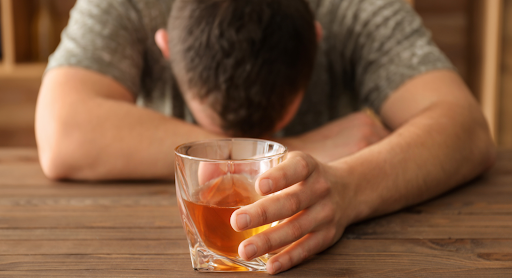Why Do I Keep Drinking When I Don't Want To? Understanding the Grip of Alcohol
- Feb 19, 2024
- 3 min read
Updated: Jun 12

If you're asking yourself, "Why do I keep drinking when I don't want to?", know that you're not alone. This struggle, where your actions betray your intentions, is not only common but also deeply frustrating and confusing- feeling trapped in a cycle that seems beyond your control, even when the consequences are piling up.
Alcoholism is more than a habit; it's a complex condition that intertwines with your physical, emotional, and mental health. Let's explore why this happens and how to break the cycle.
The Brain Chemistry of Addiction
Alcohol addiction isn't just about willpower; it's deeply rooted in the brain's chemistry. When you drink, your brain releases dopamine, a 'feel-good' neurotransmitter. Over time, your brain associates alcohol with this pleasant dopamine boost, making you crave alcohol to recreate that feeling. This dependency can make it incredibly challenging to stop, even when you consciously want to.
The Physical Hold of Alcohol
Over time, your body becomes accustomed to the presence of alcohol. It's not just a craving; it's a physical demand. Your body starts to depend on alcohol to function 'normally', and without it, withdrawal sets in – and it can be painful and frightening. This fear of withdrawal can keep you drinking even when you desperately want to stop.
The Emotional Maze
For many, alcohol starts as a coping mechanism for underlying issues such as stress, trauma, or mental health disorders. It becomes a way to self-medicate, to numb the pain or escape reality. But this relief is temporary, and often, the underlying issues worsen, creating a vicious cycle.
The Mental Battle
Alcohol can hijack your brain, affecting your decision-making and impulse control. It alters the brain's chemistry and structure, making it increasingly difficult to resist the urge to drink. You might logically know the harms of drinking, but the altered brain makes it hard to act on that knowledge.
Confronting the Consequences
The consequences of continued drinking can be devastating – strained relationships, health problems, job loss, financial strain. Yet, these consequences themselves can become reasons to drink, as guilt and shame add to the emotional burden you're trying to escape.
Pathways to Breaking the Cycle
Seek Professional Help: Consider speaking with a healthcare professional who understands the complexities of alcoholism. They can provide medical support, especially for managing withdrawal safely.
Therapy and Counselling: Addressing the underlying emotional and mental health issues is crucial. Therapy can offer strategies to cope with these issues without relying on alcohol.
Build a Support System: You don’t have to go through this alone. Support groups, friends, family, or communities can offer understanding and encouragement.
Create New, Healthy Routines: Establishing new habits and routines can help fill the void left by alcohol. Whether it’s exercise, hobbies, or new social activities, these can offer positive alternatives.
Take One Day at a Time: Recovery is a journey. Celebrate small victories and remember that each day without alcohol is a step forward.
Understanding why you continue to drink despite not wanting to can be a painful but enlightening process. It's a journey that requires patience, self-compassion, and support. At Reset My Future, we're here to provide guidance and support as you navigate this challenging but worthwhile path to recovery. Remember, reaching out for help is a sign of strength, not weakness. If you're ready to talk, we're here to listen with our free consultation.







